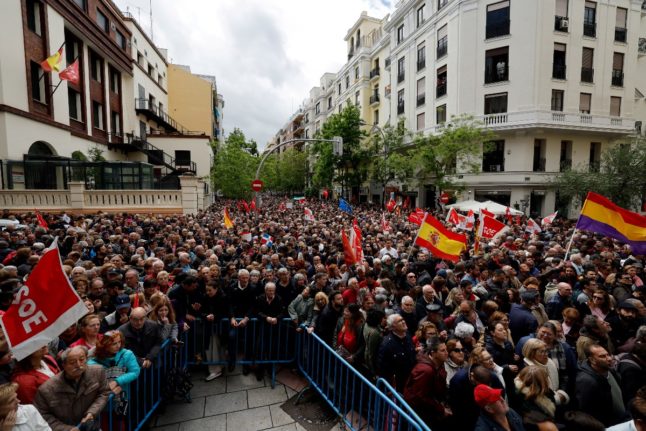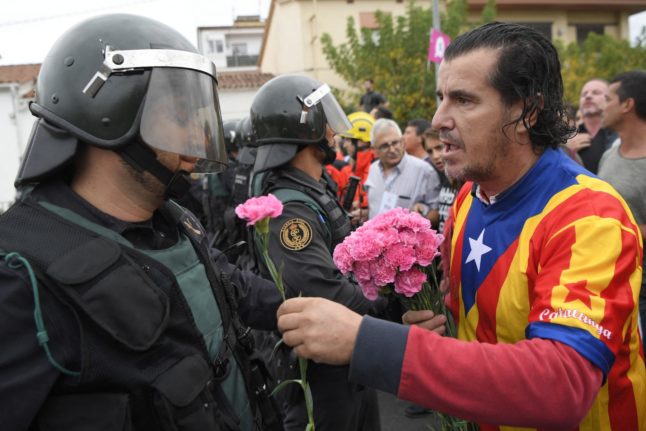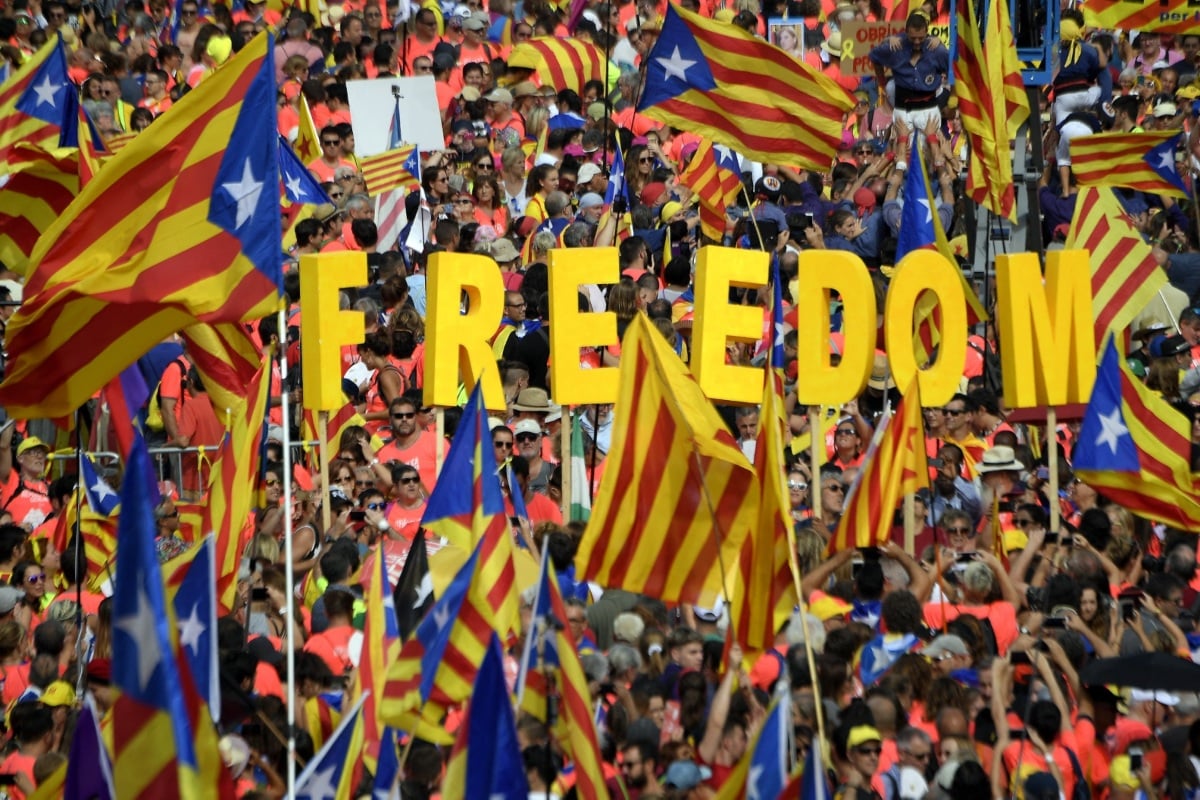The 52-year-old, who has been in office since 2018, stunned Spain on Wednesday when he put his resignation on the line after a Madrid court opened a preliminary investigation into suspected influence peddling and corruption against his spouse Begona Gomez.
Sanchez said he would suspend all public duties until he announces his decision on Monday. The normally hyperactive premier has since remained out of sight and silent.
“I need to stop and think whether I should continue to head the government or whether I should give up this honour,” he wrote in a four-page letter posted on X, formerly Twitter.
Supporters on Saturday held up placards saying “Spain needs you”, “Pedro don’t abandon us’, and shouted slogans such as “Pedro leader”.
“I hope that Sanchez will say on Monday that he will stay,” said Sara Domínguez, a consultant in her 30’s, adding that his government had “taken good steps for women, the LGBT community and minorities”.
Jose María Diez, a 44-year-old government official who came from Valladolid in northern Spain to express his support, said there was a real possibility that the far-right could take power if Sanchez quit.
“This will mean a step backwards for our rights and liberties,” he warned.
Inside the party headquarters, there were similar passionate appeals.
‘Pedro stay’
“Pedro stay. We are together and together we can … take the country forward, Spain can’t step back,” said Budget Minister Maria Jesus Montero, the government number two.
“Today all democrats, all progressives, are summoned to Madrid against a pack whose only aim is to overthrow a democratic and legitimate government,” said Felix Bolanos, Minister of the Presidency, Justice and Parliamentary Relations.
At one point, Socialist leaders took to the streets to thank those gathered. “They won’t succeed,” government spokeswoman Pilar Alegria told the crowd.
The court opened the investigation into Sanchez’s wife in response to a complaint from anti-corruption pressure group Manos Limpias (Clean Hands), whose leader is linked to the far right.
The group, which has presented a litany of unsuccessful lawsuits against politicians in the past, said on Wednesday its complaint was based on media reports and could not vouch for their veracity.
While the court did not give details of the case, online news site El Confidencial said it focused on links Gomez had to Spanish tourism group Globalia when carrier Air Europa was in talks with the government to secure a huge bailout.
The airline sought the bailout after it was badly hit by plunging paseenger numbers during the Covid-19 crisis.
At the time, Gomez was running IE Africa Centre, a foundation linked to Madrid’s Instituto de Empresa (IE) business school, which had signed a sponsorship agreement with Globalia in 2020.
Spain’s public prosecutors office on Thursday requested the dismissal of the investigation, which Sanchez said was part of a campaign of “harassment” against him and his wife waged by “media heavily influenced by the right and far right”.
If Sanchez decides to remain in office, he could choose to file a confidence motion in parliament to show that he and his minority government are still supported by a majority of lawmakers.
If he resigns, an early election could be called from July — a year after the last one — with or without Sanchez at the helm of the Socialist party.
The right-wing opposition has accused the prime minister of being irresponsible for putting the country on hold while he mulls his decision.
“It’s very clear to us that this is all a tactic… We know Pedro Sanchez and things with him always turn out like a soap opera,” Cuca Gamarra, the number two of the main opposition conservative Popular Party, said on Friday.
“He is making us all wait and the country is at a standstill,” she added.




 Please whitelist us to continue reading.
Please whitelist us to continue reading.
Member comments